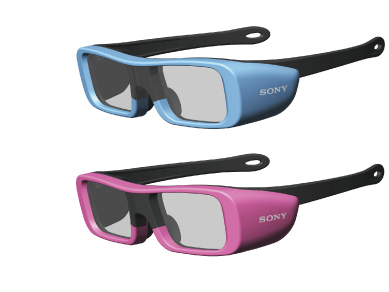Panasonic announces M-3DI - a new 3D glasses standard
Offers compatibility among TVs, projectors and 3D cinemas

Panasonic has announced that it has created a new standard for 3D glasses that can work across televisions, projectors and 3D cinemas.
Called M-3DI, Panasonic is hoping that the new tech "will let consumers enjoy the immersive 3D experience across all types of compatible 3D displays as well as at movie theatres, with a single pair of 3D active-shutter eyewear."
The Japanese manufacturer is looking to make the standard an industry wide initiative.
At the moment the technology uses infrared but radio communications are said to be the next step being considered.
Major step forward
So far there are a number of manufacturers on board with M-3DI. These include: Hitachi, Mitsubishi, SIM2 and ViewSonic.
Panasonic is calling the technology "a major step toward creating truly universal 3D eyewear."
Get daily insight, inspiration and deals in your inbox
Sign up for breaking news, reviews, opinion, top tech deals, and more.
While XPAND 3D, who is teaming with Panasonic to launch the M-3DI standard, believes it will bring more innovation in the 3D sphere.
"M-3DI eliminates confusion, provides a strong, uniform performance standard and ensures that manufacturers can concentrate on innovation and consumers can count on interoperability," said XPAND 3D CEO Maria Costeira.
"Now, with M-3DI glasses, consumers can enjoy the most advanced, immersive 3D experience in XPAND 3D cinemas, on the laptop or in the workplace or school!
"We are pleased to join the other participants in M-3DI to ensure that the amazing potential of 3D is achieved in every imaginable 3D application."
It will be interesting to see if Sony, LG and Samsung buy into the idea of universal 3D glasses, considering the rivalry between the manufacturers.
Marc Chacksfield is the Editor In Chief, Shortlist.com at DC Thomson. He started out life as a movie writer for numerous (now defunct) magazines and soon found himself online - editing a gaggle of gadget sites, including TechRadar, Digital Camera World and Tom's Guide UK. At Shortlist you'll find him mostly writing about movies and tech, so no change there then.
